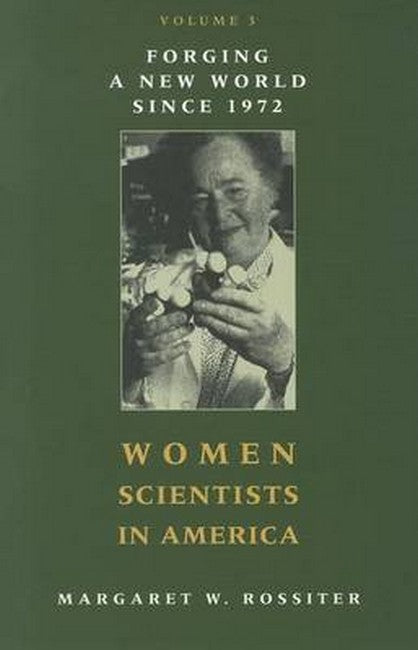The third volume of Margaret W. Rossiter's landmark survey of the history of American women scientists focuses on the pioneering efforts and contributions of these women from 1972 to the present. Central to this story are the struggles and successes of women scientists in the era of affirmative action. Scores of previously isolated women scientists were suddenly energized to do things they had rarely, if ever, done before -- form organizations and recruit new members, start rosters and projects, put out newsletters, confront authorities, and even fight (and win) lawsuits. Rossiter follows the major activities of these groups in several fields -- from engineering to the physical, biological, and social sciences -- and their campaigns to raise consciousness, see legislation enforced, lobby for passage of the Equal Rights Amendment, and serve as watchdogs of the media. This comprehensive volume also covers the changing employment circumstances in the federal government, academia, industry, and the nonprofit sector and discusses contemporary battles to increase the number of women members of the National Academy of Science and women presidents of scientific societies. In writing this book, Rossiter mined nearly one hundred previously untapped archival collections and more than fifty oral histories. With the thoroughness and resourcefulness that characterize the earlier volumes, she recounts the rich history of the courageous and resolute women determined to realize their scientific ambitions. Praise for Women Scientists in America'What we have here is a remarkable example of historian as detective... The attention Rossiter gives to identifying individuals and the details she provides about marriage, barriers,... underrecognition, disappointments, and -- yes -- real accomplishments and rewards breathe life into her frequently poignant account.' -- Science'Highly readable and exquisitely informative. Rossiter's documentation of this gloomy chapter in the history of women striving to make a place for themselves in science serves as a pungent antidote for questions concerning the fairness of affirmative action.' -- Journal of American History'Offering valuable information on women scientists and suggesting additional research opportunities, Rossiter's second volume stands as a significant contribution to both women's history and the history of American science.' -- American Historical Review'A full, complex picture of the marginalization of American women scientists in this era... I recommend this book to anyone involved in science: the questions about the sexual politics of science it tackles and provokes are too important to be ignored.' -- New Scientist

